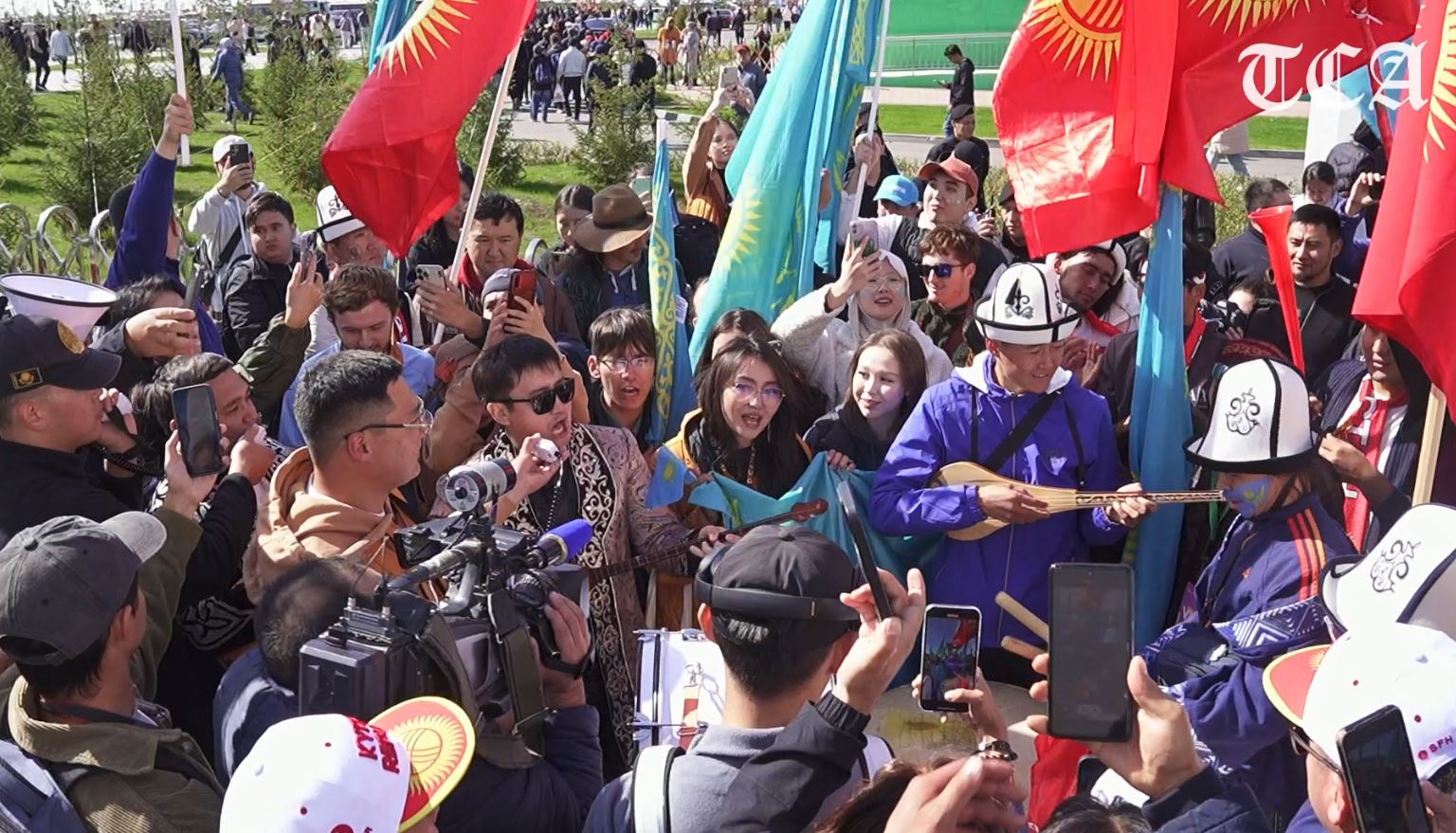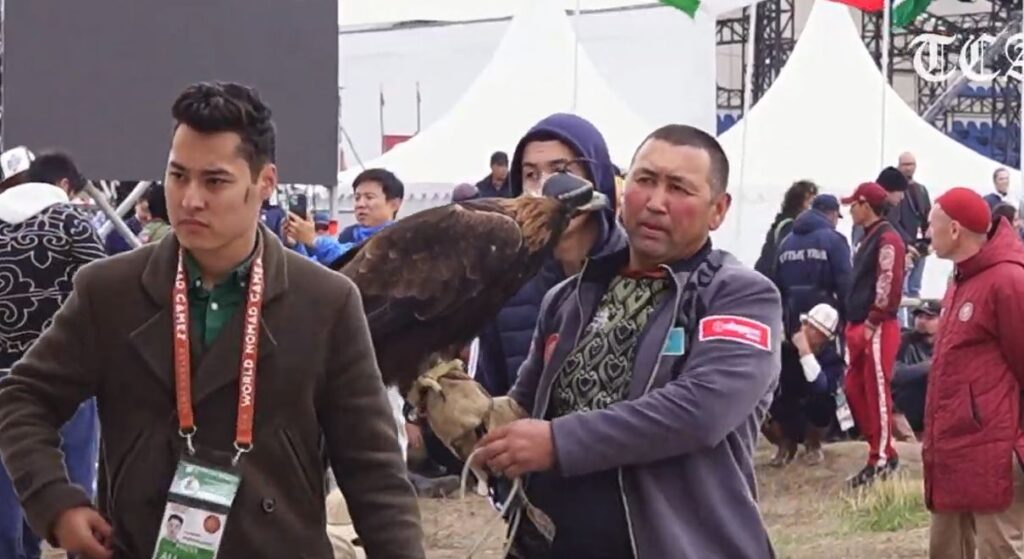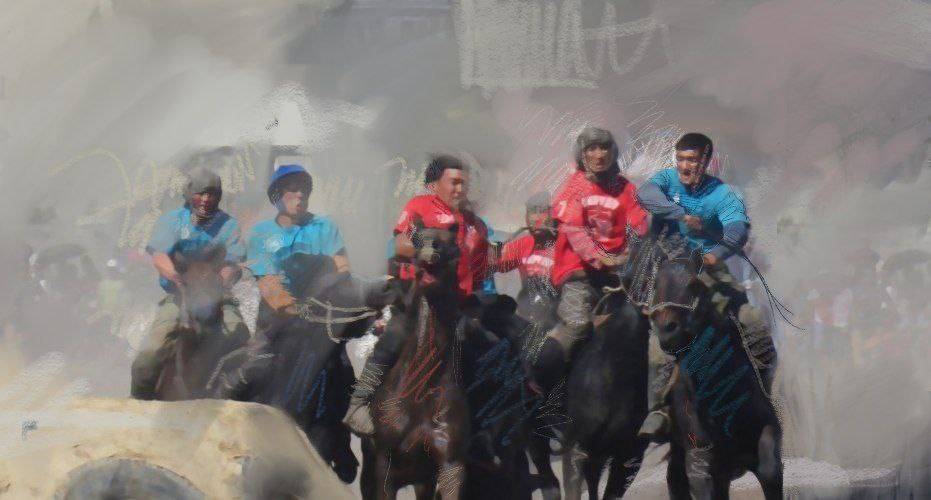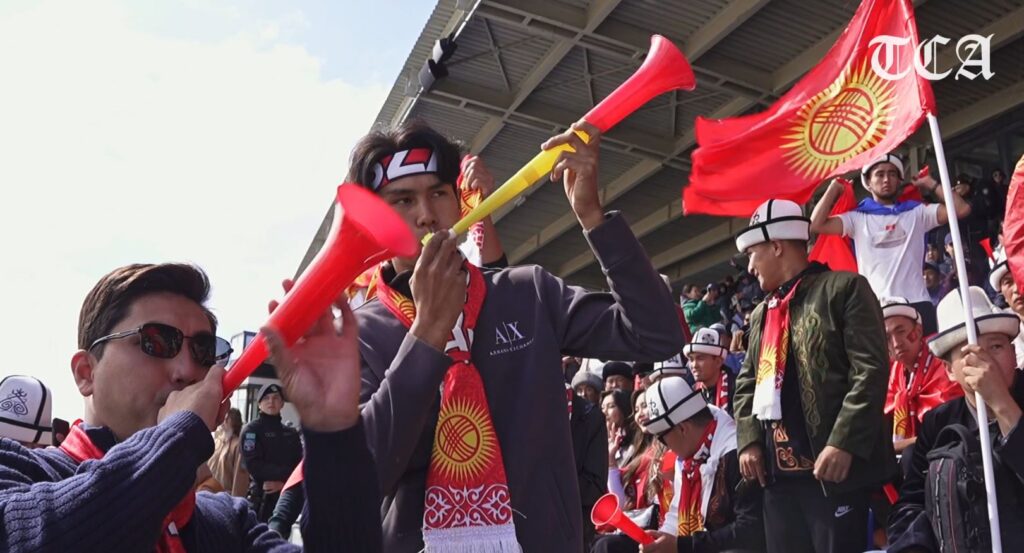Astana largely managed to turn the 5th World Nomad Games into an exemplary international sporting event free of politics and disagreements. Overall, the Games stood in stark contrast to the Olympics in Paris earlier this year, when the International Olympic Committee’s decision to allow a handful of athletes from Russia and Belarus to compete under a neutral flag led to calls from some counties for a boycott. However, the culmination of the Nomad Games saw an unpleasant incident at the final of the most popular event, which resulted in a fallout between Kazakhstan and Kyrgyzstan.
A blow with a kamcha
On September 12, an incident occurred during the Kokpar final, in which the national teams of Kazakhstan and Kyrgyzstan met, when a player from the Kazakh team, which was underperforming, struck a Kyrgyz rider with a kamcha (whip). At this point, the game was stopped, and a squad of law enforcement officers immediately surrounded the culprit.
After the offender was suspended from proceedings and given a time penalty, the game continued, and Kazakhstan, having leveled the score, won the match in overtime. The Kokpar final at the previous Nomad Games, hosted by Turkey, also ended with a marginal Kazakh victory in the derby between the long-standing rivals. However, unlike in 2022, this time the Kyrgyz national team did not accept defeat in silence. At the awards ceremony, the Kyrgyz team ripped off their silver medals, raised their country’s flag, and defiantly left the arena.
“We knew it would be unfair, but not to this extent. The referees were swearing at us, and the police were beating our players,” the Kyrgyz captain said. “A KNB (national security) officer came up to me, showed me his ID card, took my picture, and started to intimidate me, saying I was sowing discord between nations. The pressure was strong. After the scuffle, when the score was 3-1 in our favor, we were asked to leave the game. They said the refereeing would be fair… We didn’t think the Kazakhstani side would allow such disorganization and injustice. If Kazakhstanis have pride, they won’t celebrate such a victory.”
The press service of Kazakhstan’s National Security Committee promptly denied the allegations, saying their officers were not involved in providing security for the Games. Tastanbek Yesentaev, the Chief Judge of the World Nomad Games in Astana, threatened the Kyrgyz team with a 2-3 year suspension from the competition for showing disrespect.
This statement only served to further inflame proceedings. At a briefing on September 16, four days after the final, Ramis Kudaibergenov, an expert on the Kyrgyz Kok-Boru Federation, stated that the Kazakh national team committed 14 gross violations of rules in the final of the Kokpar, and given a level playing field, the Kyrgyz team would have won 5-1.
“Everyone blames the referee, but the whole system is culpable. We prepared the players based on previous games, but there were so many infractions we didn’t take into account. We were able to prove 14 gross violations of the rules [in normal time], which were caught on video. In Kyrgyzstan, there would be a huge scandal because of one such violation. In the first period, there were four gross violations; in the second – ten, and in overtime, one more. According to the rules of Kokpar, if a player violates the rules three times, he is suspended for the rest of the game, and his team plays a man down until the final whistle. We asked to change this rule, but our request was refused,” Kudaibergenov said.

Image: TCA, K. Krombie
Kokpar vs. Kok-Boru
The growing popularity of these ancient equestrian competitions has run practically in parallel in Kazakhstan and Kyrgyzstan since the 1990s, when both republics gained their independence. Kyrgyzstan is considered the founder of the World Nomad Games; the first Games were held in 2014, and its participants competed in Kok-Boru. At the second Games, which Kyrgyzstan also hosted, in a Kok-boru match against Kazakhstan, Kyrgyz riders won with overwhelming force – 15-3 – but in the same competition, a Kazakhstani player collided with a Kyrgyz opponent and suffered a head injury.
In 2017, the Kazakhstan Kokpar Federation proposed changing the rules of these competitions to reduce the rate of injuries. Since then, the confrontation between the federations representing Kokpar and Kok-Boru has steadily increased.
Since the two sports are similar, differences in the rules are nuanced. The common Turkic name, “Kok-Boru” translates as “gray wolf.” Legend tells how ancient nomads noticed that wolves, having killed a sheep, took its head to the their cubs, who they played with it. People began to call this a “game of wolves,” so gradually, the name “Kok-Boru” was born.
In Kokpar, riders are divided into two teams and fight over the carcass of a goat. In the past, competitors from one aul (village) riding at full gallop would attempt to fight off their rivals and carry the prize back to their aul. In the modern version, the aim of players is to carry and throw the carcass into the kazandyk (gate or goal) of the opposing team, represented by a three-meter circle on the ground.
In official Kokpar competitions, which Kazakhstan created, there are clear standards. A team usually consists of ten players, but there are four riders from each team on the field at any given time. Instead of a goat carcass, a dummy version (serke) weighing about 33 kilograms is used, with the game taking place on a field of a specific size, similar to a soccer field.
Kok-Boru, by contrast, can have a larger number of participants, and the game is played in a less regulated format. Instead of circles on the ground, Kok-Boru uses tai-kazan or pits. Another significant difference is that Kokpar competitions last for two periods of 20 minutes, whilst in Kok-Boru there are three periods of 20 minutes.
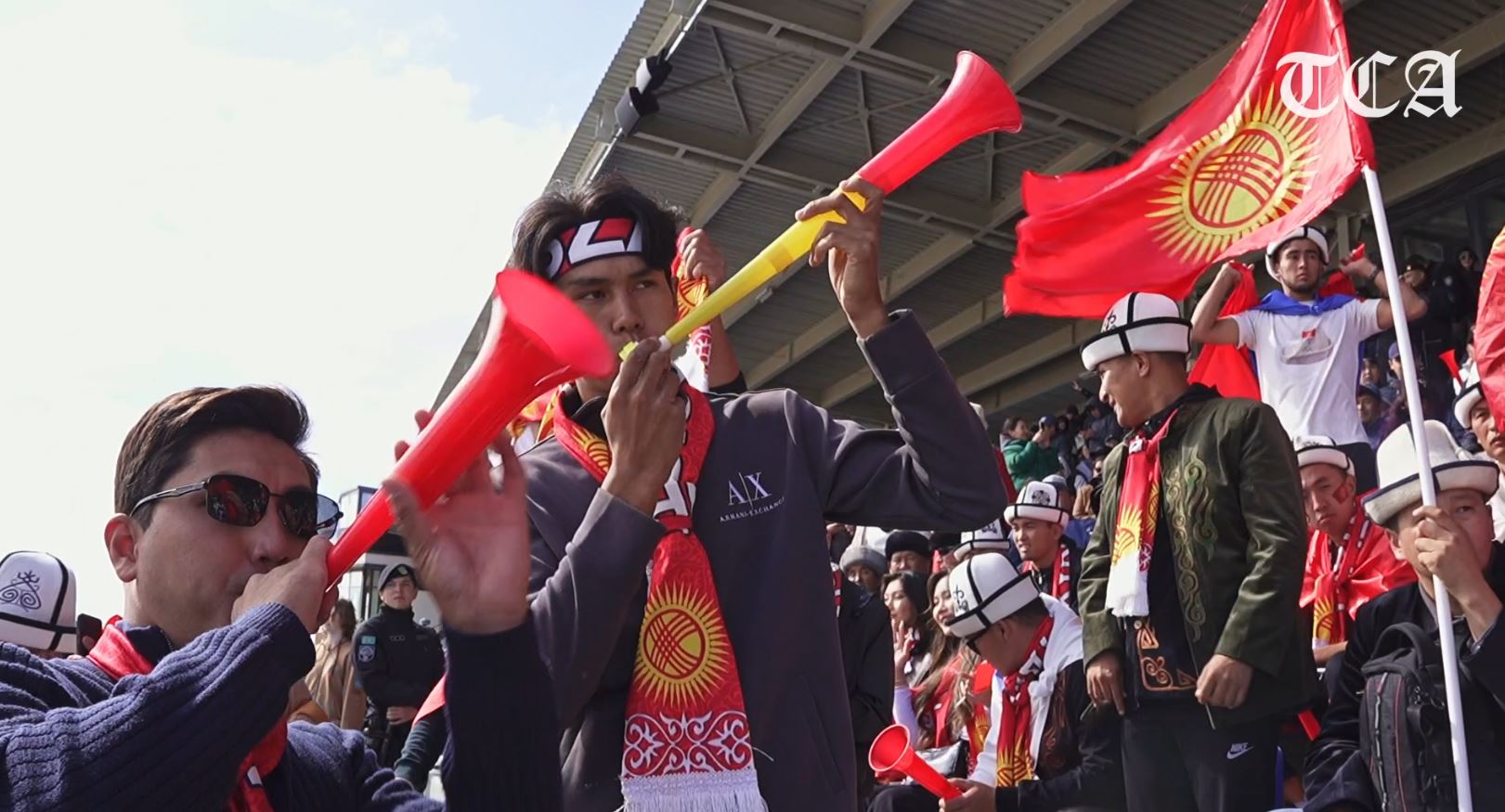
Image: TCA, Ilyas Otan
Confrontation of traditions
In 2017, when the Kazakh federation proposed standardizing the rules of Kokpar, the Kyrgyz side said that the Kazakhstan had invented a new game, the rules of which it did not agree with. In the same year, the first scandal occurred when the Kazakhs, who hosted the first World Kokpar Championship in Astana, demanded that the Kyrgyz national team play against Mongolia on steeds without horseshoes. This was supposedly to avoid high injury rates.
The dispute had to be settled by diplomats. In that championship, Kazakhstan defeated Kyrgyzstan 4-2.
At the 2018 Nomad Games, the Kazakh national team almost withdrew from the competition altogether, as the hosts, Kyrgyzstan, left tai-kazans on the field, which the Kazakhs considered a grave insult. After agreeing to participate, Kazakhstan’s national team lost in the semi-final to Uzbekistan.
In 2019, Astana summoned the World Kokpar Association, which approves the international rules of the game. Representatives from Kyrgyzstan were absent from this meeting and later reported that the new rules did not concern them as they would remain true to the traditions of Kok-Boru.
The result was that due to the intractability of the two federations — Kazakhstan and Kyrgyzstan — at the 5th World Nomad Games competitions were held in both Kokpar and Kok-Boru, with Kazakhstan winning the Kokpar 5-4, and Kyrgyzstan the Kok-Boru, 10-4.
Following the dispute, on September 16, the Kyrgyz Federation offered the Kazakhstani team a rematch as part of the Consent Cup on the shores of Lake Issyk-Kul in Kyrgyzstan, the venue for the first three iterations of the World Nomad Games. The next day, Kazakhstani journalist and blogger Aslan Kazhenov said there would be no rematch, referring to specialists supervising this area and noting that the Kyrgyz national team could not accept their defeat with grace.
The confrontation between the Kazakhstani Federation of Kokpar and the Kyrgyzstani Federation of Kok-Boru has, therefore, reached an impasse. The situation is so stymied that Maksat Chaki, one of the creators of the World Nomad Games, has proposed excluding these two competitions altogether. “The reason is not in Kok-Boru, Kokpar, or even athletes and fans,” Chaki wrote on social media. “The reason is the federations themselves and the consequences of their actions. The Kokpar and Kok-Boru federations have shown that they are unfit to organize international-level matches and even more so in international platforms like the World Nomad Games.”
The 5th World Nomad Games brought together more than 3,000 participants from 89 countries competing for 581 medals across 21 sports, with a prize fund of 250 million tenge ($521,000). Kazakhstan’s Ministry of Tourism and Sports stated that tens of thousands of foreign tourists had attended the Games, which helped “showcase Kazakhstan’s cultural and sports heritage to a global audience, significantly boosting interest in tourism to the country.”
